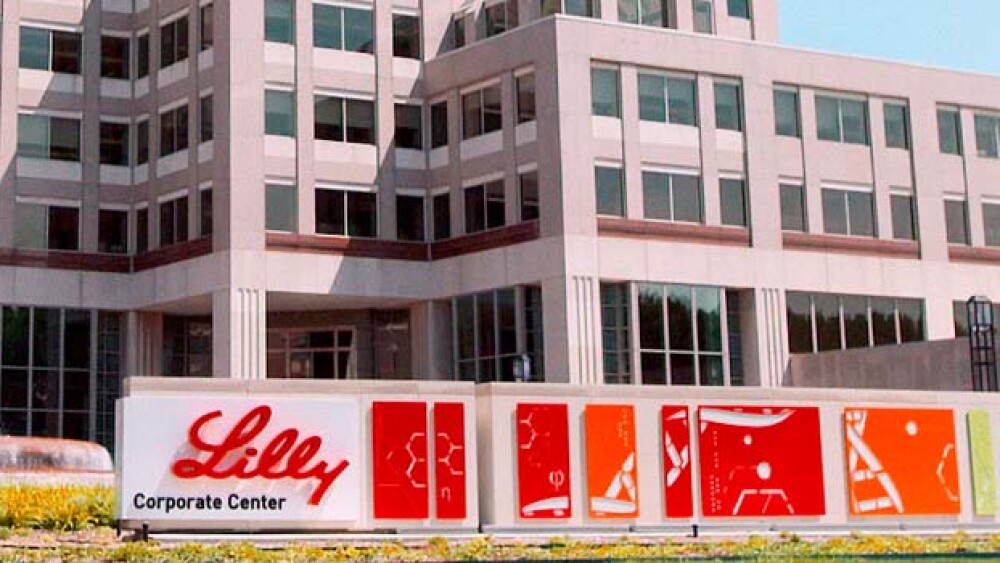Lilly is paying NextCure $25 million upfront. NextCure will be eligible for various development and commercial milestone payments, as well as royalties on any commercial products. In addition, Lilly invested $15 million in NextCure equity.
Indianapolis-based Eli Lilly and Company and Beltsville, Md.-based NextCure inked a multi-year collaboration deal focused on immuno-oncology. The collaboration will utilize NextCure’s proprietary FIND-IO platform.
Lilly is paying NextCure $25 million upfront. NextCure will be eligible for various development and commercial milestone payments, as well as royalties on any commercial products. In addition, Lilly invested $15 million in NextCure equity.
“The emerging field of immuno-oncology is offering new treatment options and hope to cancer patients,” stated Greg Plowman, vice president of oncology research at Lilly. “Through this collaboration, we hope to leverage NextCure’s discovery platform to expand the reach of this class of groundbreaking treatments by identifying novel cancer targets that could enable the development of a new generation of immuno-oncology therapies.”
The FIND-IO platform identifies novel cell surface molecular interactions involved in immune responses in the tumor microenvironment and other disease sites. It allows NextCure unique approaches to assess immune pathways in primary immune cells and established cell lines derived from a broad range of immune cell types, including T-cells, NK cells, macrophages, myeloid-derived suppressor cells, dendritic cells, and cancer cells themselves.
Earlier this year, Lilly made two bigger oncology deals. In May, it bought ARMO BioSciences in Redwood City, Calif. for $1.6 billion. Armo engineers cytokine drugs, with a lead compound in late-stage trials in pancreatic cancer. Also in May, Lilly acquired AurKa Pharma, based in Montreal, Ontario, for $110 million. AurKa works to develop drugs that target Aurora kinases, enzymes involved in the growth of cancer cells.
NextCure also has its own pipeline. Its lead product is NC318, a first-in-class immunotherapeutic against a novel immunomodulatory target found on a subset of myeloid and tumor cells. On October 23, the company announced it had initiated a Phase I/II clinical study of the compound in solid tumors. It is being conducted at five sites in the U.S.
“NC318 is the first antibody drug candidate developed at NextCure to enter clinical trials, marking an exciting milestone for our company,” stated Michael Richman, NextCure’s chief executive officer. “The trial marks a major advancement in our plan to develop our pipeline of next-generation immunomedicines for cancer patients who do not respond to currently approved therapies.”
NC318 is a Siglec-15 (S15) antibody. S15 is a novel immunomodulatory target seen on a subset of myeloid cells on certain tumor types including lung, ovarian, and head and neck cancers. Preclinical studies have shown that S15 helps suppressive myeloid cells survive and divide and suppresses T-cells. In early studies, NC318 blocks the negative effects of S15.
The regulatory function of S15 came out of the laboratory of Leiping Chen, founder of NextCure and United Technologies Endowed Professor of Cancer Research, Professor of Immunobiology, Dermatology, and Medicine at the Yale University School Of Medicine.
“The discoveries made by our group and others have paved the way for the first generation of immunotherapies, leading to major breakthroughs in cancer treatment,” stated Chen. “Building upon these early discoveries, and in collaboration with NextCure, we continue our research to identify new targets for modulating the immune system. We expect that S15, one of the first new targets identified, will be the first in a series of next-generation immunomedicines. Through a comprehensive and streamlined process, NextCure has efficiently brought NC318 to the clinic.”





